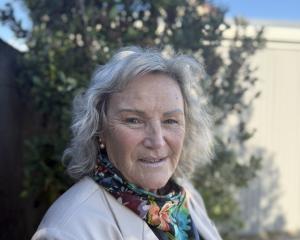Water and its woes look set to be the main agenda item for the Clutha district for the next three years. Balclutha bureau chief Richard Davison has a wade through the issues.
"Cometh the hour, cometh the man", the old saying goes.
It would be fair to say the topmost qualification for any local body representative this coming term would be a thick skin.
Councils nationwide are faced with unprecedented double-digit rates rises resulting from government-enforced infrastructure overhauls while being cheerfully belaboured with the same government’s big stick on one side and by cock-eyed keyboard warriors on the other.
You could forgive the civic-minded for grabbing the Doritos and crawling under their duvets for a further three-year spell.
However, the reverse seems to be the case, and Clutha has received a healthy 37 total nominations for mayor, its nine council seats and the district’s two community boards.
The issues facing those officials are hefty, for sure, but not insurmountable.
If there’s one thing southerners excel at, it’s cutting their cloth to suit their means, and intelligent, thrifty household budgeting for ratepayers will behove anyone taking the helm this October.
Clutha is experiencing some of the highest rates rises in the country at present, compounding in some towns to 60%-plus over two years.
For those still puzzled by the root causes, the rises — not unique to Clutha — are a result of 50 years of water standards catch-up condensed into the next decade, and driven by central government.
At the same time, ministers are playing the blame game, publicly criticising councils for financial mismanagement and vanity spending.
Incoming council officials will need to study the national playing field carefully to identify allies and enemies, and move quickly to find the most favourable partnerships for ratepayers as the game progresses.
In other respects, and despite post-Covid global economic challenges, Clutha has shown tentative green shoots of recovery, reversing a longer-term exodus from the district.
This is in no small part due to a continuing programme of — now unfashionable — wellbeing spending by the council.
The government has been urging councils to go back to basics, and concentrate on the core business of water and roading.
There’s no doubt these activities remain central to the health of any district, but it would be foolish to underestimate the less quantifiable drawcards of appealing social amenities to those considering living there.
All work and no play makes Jack a dull boy, after all.
Fiscal prudence does not have to mean parsimony, and new amenities such as Balclutha’s $25 million Te Pou Ō Mata-Au Clutha District War Memorial & Community Centre and refreshed playgrounds and public toilets right across the district send a message to those thinking of setting up house locally.
A balance needs to be struck — ensuring today’s bills are paid while longer-term ambitions remain on track.
It would be a shame, for example, to impede "Town of Opportunities" Milton from finally living up to its billing, with a multimillion-dollar streetscape upgrade and new pool imminent, and an inland port at Milburn a potential catalyst for growth.
If Clutha’s new council can steer a tricky middle path between skinflint and spendthrift, it will serve its ratepayers well.












